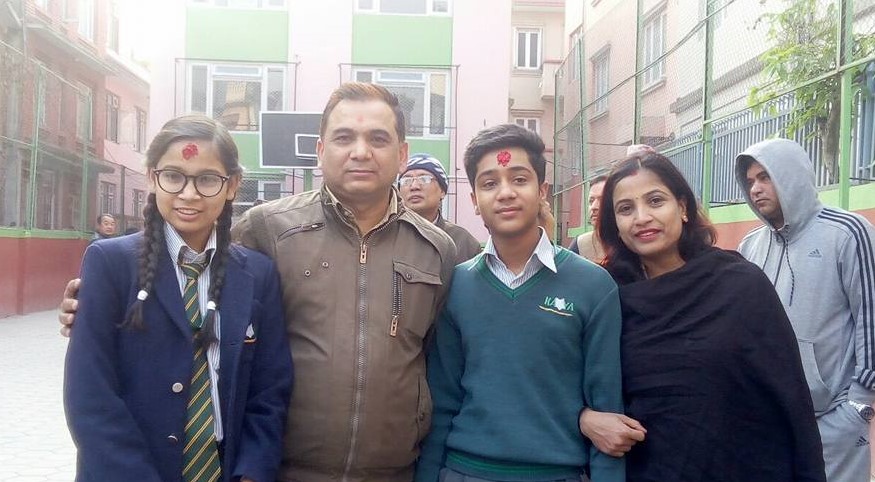“Who am I?” I sometimes ask this question to myself. Looking back in early high school, I would have described myself as a simple and plain student who loved math. I liked solving my problems in math since it gave me a sense of relief. But I was always scared to tell people how much I loved it. Why? I was scared somebody would ask me to solve a problem and if I was unable to solve it, they will declare that I don’t like math at all. This anxiety made me somehow doubt myself every time I looked at those textbooks. I was one of the good students in math in my school but I knew someone else would always be much better than me. I always thought I was not the best at math, so I just don’t have the right to say I love math. I was scared to speak about what I liked due to the fear of someone judging me. I felt I have to be perfect in everything I did. I believe there are a lot of students who go through a similar kind of anxiety like mine.

I love my society, along with its culture and values. Living in Nepali society, I learned mercy, love, giving and peace but there are a lot of things that still saddens me about it. We always relate a person’s capability with one’s academic score as a student. Our worth was not something we had but it was to be gained through our scores, our discipline, and our successes. If we failed, we were bad students. The label some of my friends got in school was merely “bad students”. I wonder if that’s the only thing we could ever see in them. After learning about WYA, I recognized their capabilities, uniqueness, and worth as humans with human dignity.
According to my society, a person has value when he/she reaches adulthood: the age of independence where they will earn and feed themselves. Children with ages below that had no rights or value of any kind and are not capable of anything. If there are conditions in order to be valuable, human dignity will never be intrinsic, inalienable, and universal. I didn’t regard myself as a person who has value until I learned in WYA that we all have our dignity from conception to natural death and it is something no one could take away from me.

WYA’s Human Dignity Curriculum (HDC) helps teach this by guiding students to learn about their value and uniqueness as humans. It teaches students about the hierarchy of beings, where humans hold the unique power to think and choose compared to beings like plants and animals. The HDC helps children understand the question ‘Who am I?’ making them realize their ability to achieve true human excellence. One of my favorite parts of the HDC is ‘Choosing Your Hero’ where students learn who they want to be like and how they can strive for excellence by making good choices. It also allows children to differentiate between a subject and object, teaching them that every human being is a subject and should never be regarded as an object to discard.
When children know their value, this will help them believe in themselves and make them more confident and responsible for their actions. Children who understand their own and others’ dignity help them to realize their similarities and uniqueness at the same time. This sense of worth makes them perceive that they are valuable human beings in any condition. For me, this sense of worth is something that pushes me to choose goodness in life.
One day, I hope students like me in my society can understand who they are much faster than I did. I hope that they would be able to have the freedom to express their likes and dislikes without judgment and the pressure of being perfect. I hope we can understand that everyone is unique, thus everyone can’t have perfect academic scores all the time. There is always something one is good at and bad at. I also hope we will be able to understand that having value or human dignity does not require any condition and children should be taught about their dignity in order to build a great connection with family, society, and the world.
[su_divider top=”no” size=”1″ margin=”10″]
Published on: Oct. 25, 2019
Written by Diwa Ghimire, a WYA Headquarters intern from Nepal
The Human Dignity Curriculum (HDC) is WYA’s premier learning program for children in Grades K-8. It answers the questions: “Who am I and what can I become?” Interested in taking the Human Dignity Curriculum to your community? Click here to get started!







